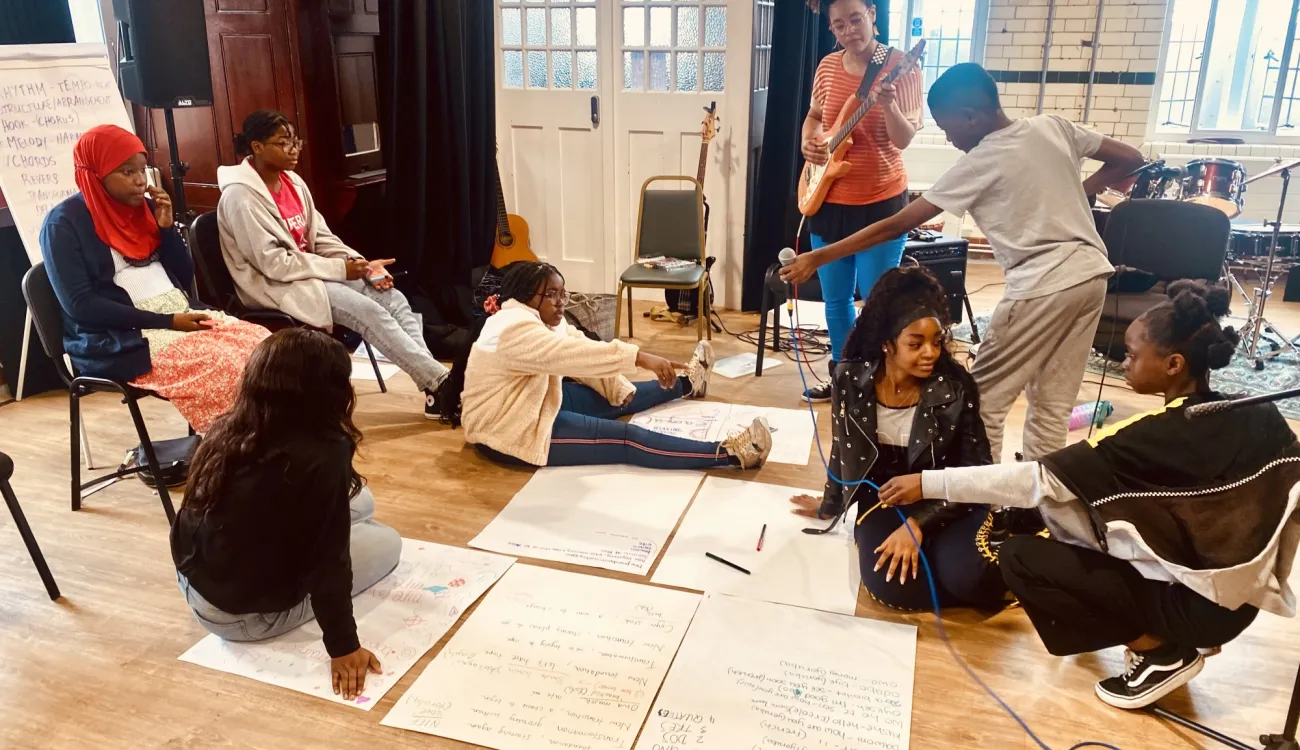In Practice and Policy: Co-Creating an Ethical Framework and Organisational Decolonisation Process with Young Refugees, Asylum Seekers and Migrants.
Non-academic partner: Fairbeats
Academic host institution: Birmingham City University
This project will develop the Fairbeats Ethical Framework, which will be a guide to decoloniality for music leaders/educators, working with children, young people, parents/carers and music leaders in Lewisham.
Summary
The context and the challenges it addresses
This project seeks to address issues of safety and self-expression for children, young people and their families with experience of seeking asylum and forced immigration. Music programmes co-created with and tailored to this community are well-placed to support children and young people to creatively share their perspectives, voices and self-expression. However, without ongoing self-reflection, intentional action for change, decoloniality and anti-racist practices, it is likely that organisations will perpetuate harm and oppression.
Aims and objectives
Our aim through this project is to make a significant contribution to improving access to music opportunities for children, young people and their families who have experience of seeking asylum and forced immigration - upholding their human right to creative expression.
This will be done by exploring how to engage with decoloniality in music practice when working with people with experience of seeking asylum and forced immigration.
We will do this through researching and co-creating the Fairbeats Ethical Framework, which will be a guide to decoloniality for music leaders/educators. This process will involve participatory action research with Fairbeats children, young people, parents/carers and music leaders (phase 1) and creative responses to the research in the style of ‘They’re Playing My Song’, a previous Fairbeats project platforming voices and stories from across the Fairbeats community (phase 2).
Our research will be guided by a number of research questions, the primary question being: “How do children, young people and their families from an asylum seeking and forced immigration background, perceive, interact with and use music?”. Secondary questions explore safety for this community; how they feel seen, heard and valued; and the role of music organisations in addressing oppression, colonialism and racism.
A supporting aim of this project is to ensure that there is ongoing organisational change at Fairbeats, as we learn from our stakeholders how to create a ‘system of care’ for everyone working and engaging with Fairbeats.
Potential applications and benefits
We hope what we produce will be used widely by organisations and music leaders/educators working with children and young people with experience of seeking asylum and forced immigration. We believe we can produce an authentic framework that is co-created and applicable to many organisations who work with the particular demographic in this study. In the long-term, we hope UK music education policy acknowledges the importance of safe and caring musical spaces for young people experiencing marginalisation and oppression, particularly those with experience of asylum seeking and forced immigration.
As a study that will engage with primary research, we will also seek to report on and disseminate the findings of this study in academic communities and spaces to further improve on the knowledge production and practice of music educators. This is crucial as Universities are positioned in society as hubs for knowledge and expertise on matters such as injustice and education. As such, we hope to influence these areas across the sector and raise the profile of practice based music education for marginalised communities.
